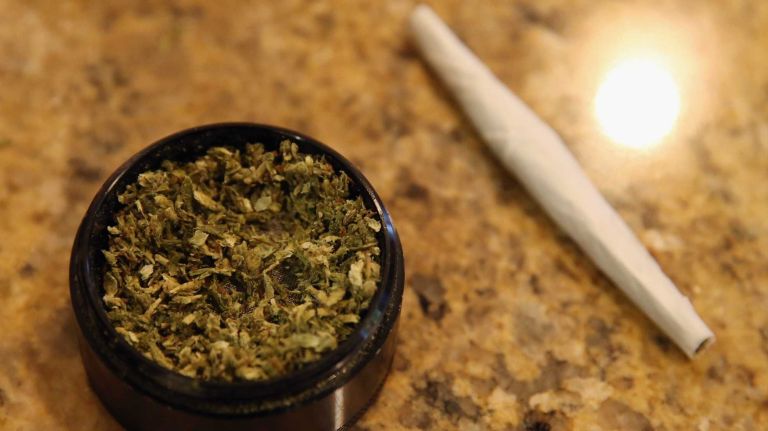
Critics in California and Oregon have labeled me another prohibitionist attempting to slander the sacred herb, Nancy Reagan, a DEA agent, the church lady in Reefer Madness and a born-again Christian proselytizer. Funny names for a left-wing Jewish liberal from New York who argues against jailing anyone for smoking joints.
Why? Because I publicly lamented the glamorization of ganja on the Web series “High Maintenance” and the comedy film “Kid Cannabis” — both of which make pot smoking look like hilarious fun. I maligned the touting of Colorado boutiques selling “mountain high suckers” in rainbow flavors of weed, like candy, that could attract children. Furthermore, I challenged pro-marijuana spins that insist pot is completely nonaddictive and harmless.
Mostly, I confessed that getting high at 13 got me hooked on pot for decades — until an addiction specialist helped me stop at 41, explaining, “When you quit a toxic substance, you leave room for something beautiful to take its place.” Indeed, in the last dozen years toke-free, I’ve fixed my career and my marriage and tripled my income.
Thus I acknowledged my ambivalence about the fervent legalization campaign across the country, fearing pot could be dangerous for young people, based on statistics, reports from The New England Journal of Medicine, troubling stories from my students and my own bad experiences.
To be clear: I have no problem with medical marijuana and feel nobody should be imprisoned for recreational toking. I hope smoke-able weed is legalized in all 50 states, but only with restrictions similar to those for alcohol and cigarettes: prohibited under age 18 or 21, not sold in vending machines and dispensed in regulated doses. After all, about 17 percent of those who get high as teens will become addicted to marijuana (like I was), along with up to half of people who smoke pot daily, according to the definition of addiction in The Diagnostic and Statistical Manual of Mental Disorders. The 2012 National Survey on Drug Use and Health shows 2.7 million people over age 12 fit the criteria for marijuana addiction.
I worry commercialized edible cannabis can be perilous because reactions vary and doses are confusing. Even Pulitzer Prize-winning columnist Maureen Dowd mistakenly ate too much pot candy — in the form of a caramel-chocolate candy bar — and nearly overdosed. If she couldn’t figure out what amount was safe to ingest, how could your average teenager?
I have analyzed the hostility surrounding this hot-button personal freedom issue. Maybe a gray slant by a former user like myself is threatening in a long black-and-white war that tokers feel they are close to winning. I knew I was in trouble when a Shreveport ACLU director trashed me while I was defended by a Louisiana Republican MD and U.S. Representative. (My staid doctor dad in Florida was shocked we finally agreed on something.)
I felt vindicated, yet saddened, when many others — of all backgrounds — recently shared stories about the dark side of pot:
A Southern grandma is heartbroken that her beloved granddaughter became a lethargic pothead who dropped out of school and isn’t working.
A Northwest widow believes smoking marijuana for 40 years exacerbated her husband’s denial of and horrible death from lung cancer.
A sister is convinced her brother’s life and artistic talent were destroyed by weed, which he smoked since age 15, leading to debilitating paranoia and dementia.
While addiction is defined by “a compulsive need for a substance,” my addiction specialist says that to tell if something is a habit or addictive behavior, just quit for a week. If you have no problem, you probably weren’t addicted.
Based on all the kooky cannabis commentary, I wouldn’t want to witness the West Coast’s withdrawal symptoms.
Susan Shapiro is co-author of “Unhooked: How to Quit Anything” with Frederick Woolverton, and author of the memoir “Lighting Up.”




































